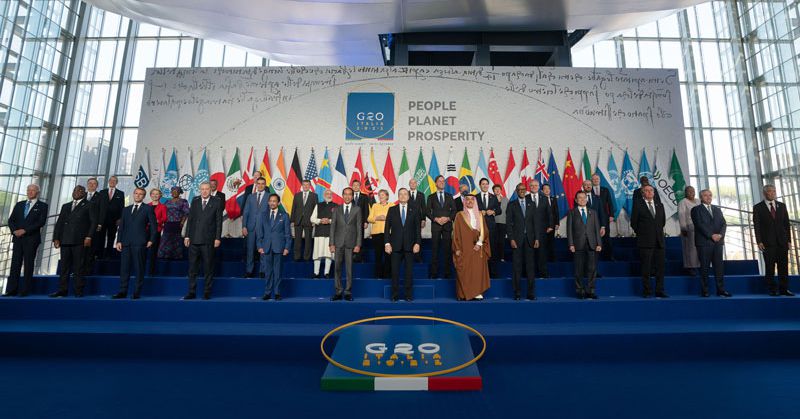World leaders have formally agreed to an overhaul of international tax rules that would impose a new global minimum tax on business profits of 15 percent, the Organization for Economic Cooperation and Development (OECD) has announced. The agreement at this year’s G20 summit in Rome is intended to curb the benefits seen by large companies that shift profits overseas to tax havens, which supporters of the deal argue has limited the amount of tax revenue countries are able to collect.
The deal also intends to update international tax rules to reflect the realities of the digital era. Rather than taxing a company where its operations are, the rules would allow countries to tax a company where its services are sold, The New York Times notes. These changes are likely to have a big impact on US tech firms’ European operations. Many such companies are headquartered in Ireland to benefit from its lower 12.5 percent tax rate, but sell services across the whole of the continent.
The Inclusive Framework agreement is intended to curb the decades-long decline in corporate tax rates globally. The OECD estimates that the rules, which are expected to come into effect globally in 2023, will raise an additional $150 billion in annual tax revenue. In the US specifically, the Biden administration hopes the changes will bring in $350 billion in additional tax revenue over the next ten years, the NYT notes.
In a statement, US Treasury Secretary Janet Yellen praised the “historic agreement” which she said will “end the damaging race to the bottom on corporate taxation.” 136 countries and jurisdictions which account for 94 percent of global GDP have agreed to the new rules, the OECD notes.
This deal will remake the global economy into a more prosperous place for American business & workers. Rather than competing on our ability to offer lower rates, America will now compete on the skills of our people, our ideas & our capacity to innovate—which is a race we can win.
— Secretary Janet Yellen (@SecYellen) October 30, 2021
The 15 percent tax floor will apply to corporations with revenues above €750 million (about $867 million), effectively limiting it to the world’s largest companies. If one of these companies shifts profits to a low-tax country, it’ll be forced to pay a “top-up” tax in the country where it’s headquartered, effectively forcing it to pay the difference to get up to the 15 percent minimum, The Washington Post explains.
Although an agreement has been reached, the challenge now is for the 136 countries to implement the new rules. In the US, for example, WaPo notes that laws surrounding tax treaties may need to be changed, which would require cross-party support from two thirds of senators. Critics such as the charity Oxfam have also criticized the deal’s “generous carve outs” and the fact that it only applies to less than 100 companies worldwide.
Credit: Source link




















